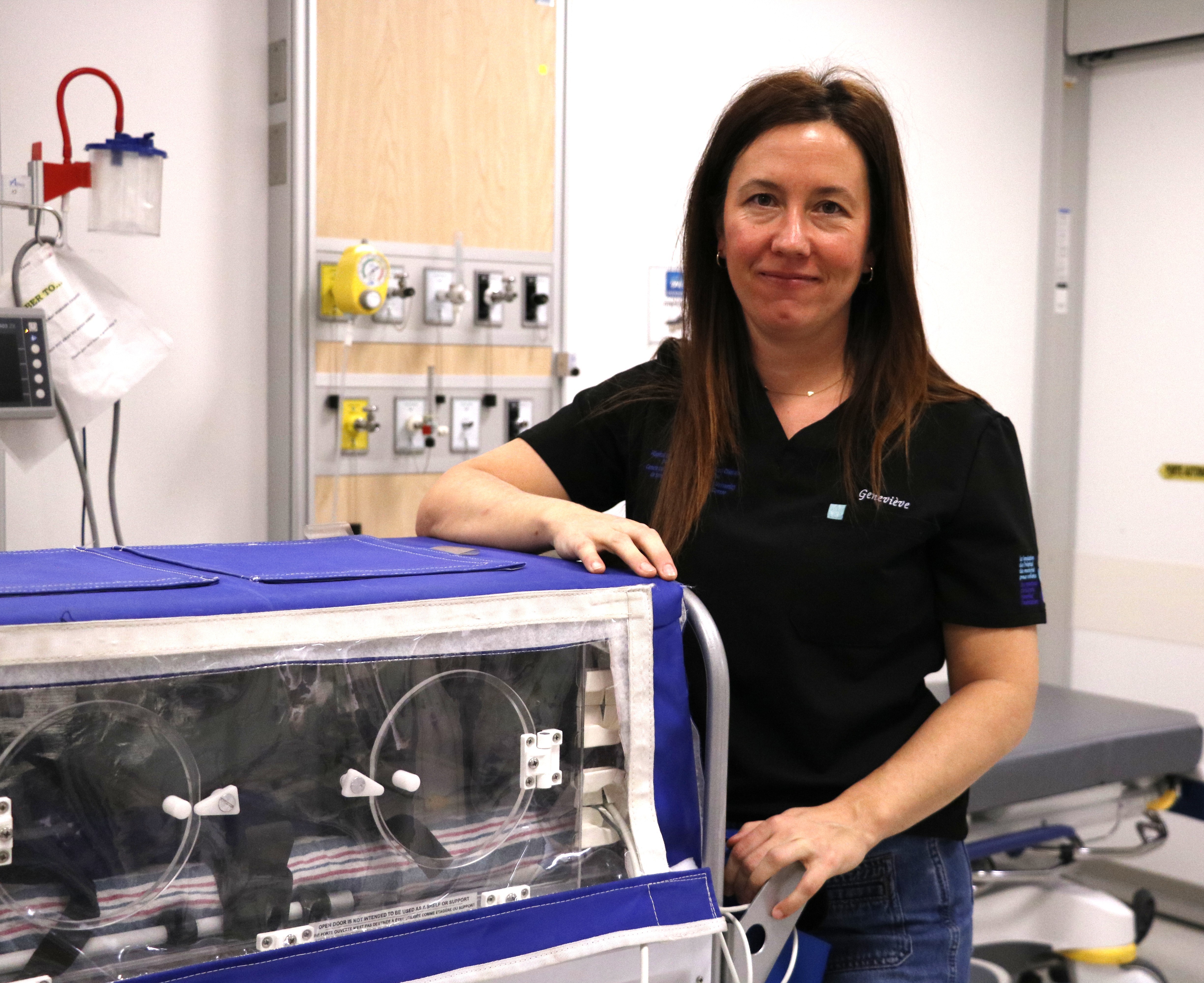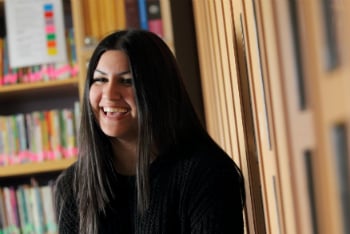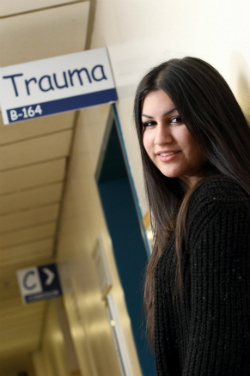
Celebrating Critical Care Transport Nurses at the MCH
18 February 2026
Rise in respiratory infections and measles outbreak: important infection prevention measures at the Montreal Children’s Hospital.
Read moreWelcome to the Montreal Children's Hospital

22 April 2014
It happened in just a split second – not once, but twice. Colleen Lobo, now 18, says while her memories of her concussions during high school are a bit fuzzy and both of them happened very differently, the aftermath felt remarkably familiar.
It happened in just a split second – not once, but twice. Colleen Lobo, now 18, says while her memories of her concussions during high school are a bit fuzzy and both of them happened very differently, the aftermath felt remarkably familiar.
“If you’ve never had a concussion before, it’s hard to understand what it feels like,” she explains. “A constant headache, loss of focus and concentration, dizziness, nausea, disorientation, sensitivity to light and noise…it really feels like you’re completely out of it.”
Two concussions two years apart
Colleen’s first concussion happened in her grade 10 math class, of all places. A fellow classmate tilted her chair to the side while she was sitting in it, and Colleen took a spin and hit her head. Unaware of the signs and symptoms of a concussion, however, the teen initially shrugged her injury off, assuming the symptoms would pass.
“I didn’t even know what a concussion was, so I thought I could rest over the weekend and feel better. I never did start to feel better though.”
After four days of suffering, her parents and teachers insisted she seek medical care at the Montreal Children’s Hospital’s (MCH) Emergency Department (ED), where Colleen was diagnosed with a mild Traumatic Brain Injury (mTBI), otherwise known as a concussion.
Just two years later, she found herself in the same position. This time she went up for a rebound during a high school basketball game and a fellow player accidentally hit her in the temple.
“I blacked out for a couple of seconds,” she says. Thankfully, having known what a concussion felt like due to her previous experience, Colleen made the wise decision to immediately leave the game and sought medical attention soon afterwards.
Her most recent experience, she says, involved a six to seven month recovery period that often tested her patience, but ultimately taught her how to balance the demands of her fast-paced student lifestyle with her new limitations.
“When you’re not concussed, you know how far you can push yourself,” she explains, “but when you have this kind of injury, you have to learn what your new boundaries are, and that can be really difficult to accept.”
Managing concussions through a proactive, comprehensive approach
Thanks to a proactive interprofessional approach developed by MCH Trauma specialists as part of the mTBI Program and Concussion Clinic, patients like Colleen are offered comprehensive assessments, and interventions from a variety of specialists ranging from initial consultation with the Trauma Coordinator, Helen Kocilowicz who conducts screening and coordination of care, to the physiotherapists, the psychologist, the neuropsychologist, and other consultants as appropriate.
The result is that patients have access to experts who can address the variety of issues that can arise from having experienced a concussion.
“I was able to get medical help from Dr. Sasha Dubrovsky to manage my headaches, but I also had weekly interventions with Lisa Grilli, my physiotherapist to help me get back on my feet and start working on my balance. Dr. Yves Beaulieu also helped me talk out my frustrations and gave me tricks to help with my concentration and accepting the boundaries of what I was now able to do,” says Colleen, adding that this approach helped make her feel like she was being supported on all fronts.
Tackling the wide-ranging needs of a given patient also encourages a rigorous feedback mechanism, which Dr. Sasha Dubrovsky, Colleen’s medical specialist, says ultimately improves the healthcare experience for all patients. “Colleen’s feedback enabled a two-way collaborative partnership that helped develop novel headache management strategies for future patients,” he says. The pediatric emergency physician credits the teen’s experience to inspiring a successful publication on the use of nerve blocks (an injection of Lidocaine anesthetic) for managing concussions following her treatment.
“Because each child is different, our approach is individualized,” says Debbie Friedman, MCH Trauma Director. “Specific needs must be addressed taking everything into consideration: the patient’s symptoms, previous medical history, academic issues, stressors, sports and extracurricular interests, family reactions and personal goals.”

Friedman insists that when it comes to concussions, being proactive is paramount to a more positive outcome. Education and awareness are therefore essential to the MCH Trauma Centre’s approach.
“Our team not only helps patients confirm a definitive diagnosis, but also work with children, teens, parents, teachers, and coaches to ensure a period of physical and cognitive rest, and to guide them through the recovery phases so that they are able to return to school, sports, and other recreational and extracurricular activities such as music, and drama.”
Looking towards the future
For her part, Colleen is thrilled to have overcome her concussions with help from the entire team. “I honestly wouldn’t have been able to have gotten to this point without them,” she says.
Now finishing up her second semester at John Abbott College, Colleen credits her experience with the MCH’s MTBI team in helping her get into the business program she recently started. She looks forward to one day studying at Concordia University’s John Molson School of Business and hopes to dedicate some of her free time to volunteering in the ED at the Children’s.
“I got more than just tips and tricks from coming to the Children’s,” she says, “many of the things I learned from the team that treated me were life lessons.”
Education and research: a vital part of the approach to better managing concussions
The MCH’s innovative approach has not only benefitted patients and their families, but school boards, sporting associations, policy makers and researchers alike.
“We’re extremely proud to be taking a leadership role in this important area of trauma care and were pleased to have our Program, Concussion KiT and other educational materials cited by L’institut national d’excellence en santé et en services sociaux as the model for care,” says Friedman.
“Our Program is also currently involved in several Canada wide multi-centre studies under the leadership of Dr. Isabelle Gagnon – one of which includes developing a Canada wide Concussion data base. The mTBI Program therefore highlights prevention through intervention and evidence-based practice and this is supported by ongoing research.”